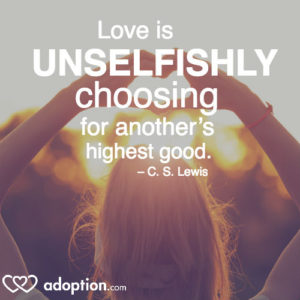February 26, 2020
What Happens When Your Child Wants to Meet Their Birth Family?
Humans are born with an innate and genuine sense of curiosity. Undoubtedly most of our parents can recall times when were kids when we incessantly questioned, “Why?” This sense of curiosity and the desire to know more about oneself extends to every human on earth. We all go through our journey to discover who we are, and what drives and empowers us. Adopted children may experience even deeper desires around self-discovery because they have a different relationship with their biological family. Each family chooses to address adoption in a way that works for them; there is no playbook for navigating these situations. It is especially common for adoptive parents to feel anxiety or stress when their child expresses the desire to learn more about or to meet their birth family.
This might be a tough pill to swallow, but it is not your choice. Your child is a unique human being with their own needs and desires, and they have a right to understand their past. There are age-appropriate ways to introduce this conversation and experience in their lives. Still, as your child ages, they may want to have more autonomy over this part of their adoption story.
When your child starts having stronger feelings or queries around their birth family, it can be a fearful or anxious experience for adoptive parents. You don’t want to project that onto your child, though. If you are feeling overwhelmed, seek out a professional to vent your concerns and worries about this process—don’t make your child the recipient of that energy. If they always wonder why they were “abandoned” or “not wanted,” it can profoundly affect their development and sense of self-worth, manifesting in powerful ways.
Don’t run away from this scenario; embrace it. You can help guide your child’s experience by offering support and ensuring that they remain safe. When you choose to engage this process, you are letting your child know that their questions are valid and essential. You can’t predict how a birth family search will end, and that’s not the point. Your role is to listen to them, help them manage their expectations, and support them every step of the way.



